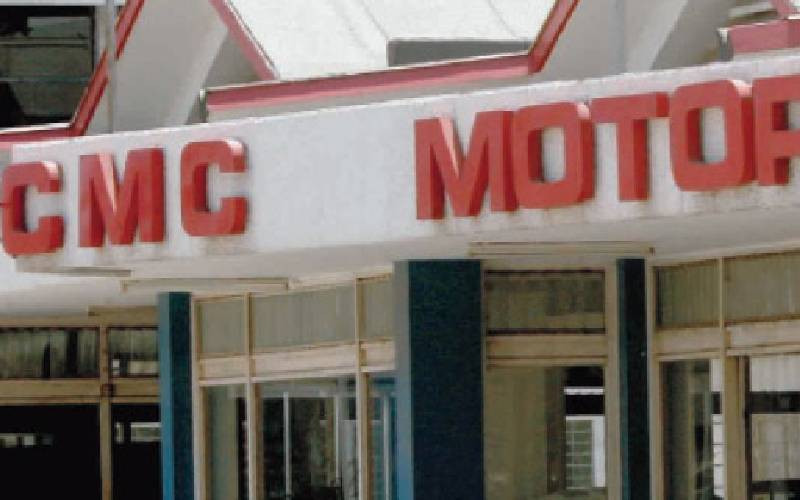
CMC Motors
CMC Motors Shuts Down Nairobi Operations After Four Decades
CMC Motors, a leading automotive dealer in East Africa, has announced its decision to close its operations in Kenya, Tanzania, and Uganda after more than 40 years. The move has sent shockwaves through the automotive industry and impacted scores of employees. The closure marks the end of an era for the company that has played a significant role in supplying vehicles and equipment in the region.
Reason for Closure
The decision to cease operations was reportedly influenced by declining sales, high operational costs, and increasing competition in the regional automotive market. According to reports, these challenges made it difficult for the company to sustain profitability.
CMC Motors’ Nairobi headquarters, once a hub for automotive sales and service, is among the key locations affected. The company served a wide range of customers, offering vehicles such as Suzuki, Mazda, New Holland, and a variety of other reputable brands.
The Nairobi facility was known for its extensive price lists, making it a go-to destination for customers seeking competitive rates. However, increasing market pressure has gradually eroded its dominance in the industry.
Employee Retrenchment
The closure is expected to lead to a significant wave of employee retrenchment, with hundreds of workers potentially losing their jobs. This has raised concerns about the economic impact on affected families. Reports indicate that the company has initiated discussions on severance packages and other compensatory measures for employees.
Former employees and applicants who frequented CMC Motors Nairobi Vacancies listings have expressed disappointment, as the company was once regarded as a leading employer in the region.
Impact on Automotive Industry
The closure of CMC Motors leaves a significant void in the East African automotive industry. As a major distributor of international automotive brands, including New Holland tractors and Suzuki vehicles, the company catered to diverse sectors, from agriculture to logistics. Its absence is likely to affect vehicle availability and increase the burden on remaining players to fill the gap.
Competitors such as Toyota Kenya and Simba Corporation are expected to capitalize on the vacuum left by CMC Motors. However, market analysts believe it will take time for the industry to adapt to the change.
What Happens Next?
For long-standing clients accustomed to services from the CMC Motors Nairobi location, finding alternative suppliers will become a priority. Businesses and individuals relying on the company for vehicle servicing, parts, and equipment may face temporary challenges during the transition.
Additionally, CMC Motors is expected to liquidate its remaining stock of vehicles and spare parts in the coming weeks, creating opportunities for customers to access discounted prices. However, there are concerns about after-sales services, such as warranties and repairs, for vehicles previously purchased from the company.
Looking Back: CMC Motors’ Legacy
Since its inception in the 1980s, CMC Motors has been synonymous with quality and reliability in Kenya. The company contributed significantly to the country’s economic development by supporting agriculture and infrastructure projects with its vehicles and equipment.
The Nairobi showroom was especially recognized for its robust catalog, featuring vehicles like Mazda and Suzuki, with competitive prices in Kenya. Its price lists were widely consulted by customers who sought detailed insights into costs and specifications before making purchasing decisions.
Furthermore, CMC Motors had a strong presence in other parts of the country, including Nakuru, where it served a growing clientele.
Reactions and Public Sentiment
News of the shutdown has sparked mixed reactions from the public. Loyal customers have expressed regret over losing a trusted dealer, while industry experts have debated the larger implications for the automotive market.
On social media, conversations around the closure highlight nostalgia for the company’s contributions and concerns for displaced employees. One Twitter user commented:
“CMC Motors has been an integral part of our lives for years. Their closure is a wake-up call for businesses in Kenya to adapt to market changes or risk extinction.”
Another user wrote:
“This marks a sad day for Kenya’s automotive history. Best wishes to all CMC Motors employees navigating these difficult times.”
Future Opportunities
The closure of CMC Motors could present opportunities for smaller automotive dealers to expand their reach and attract customers. Additionally, international investors might explore entry into the Kenyan market to meet the growing demand for quality vehicles and equipment.
For those searching for alternatives, it’s worth noting that competitors offer robust services and competitive prices to fill the gap.
Final Thoughts
The closure of CMC Motors is a significant event in the East African automotive sector. As the company shutters its once-busy Nairobi location and other branches, its legacy will remain a key chapter in the region’s economic story.
While the immediate impact on employees and customers is a concern, the industry is expected to adapt and evolve. For now, those seeking updates on CMC Motors Nairobi vacancies, services, or liquidation sales should monitor public announcements to stay informed.






